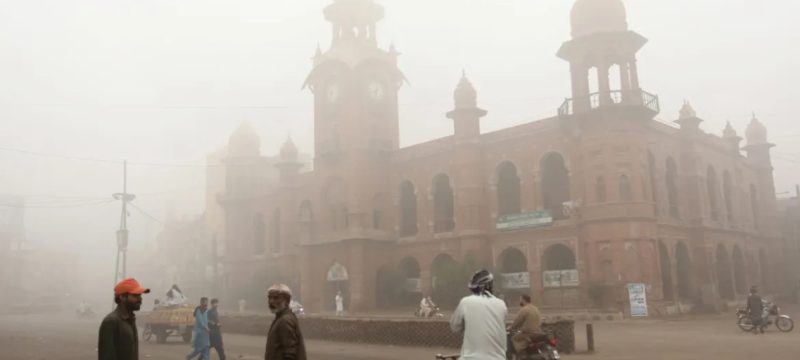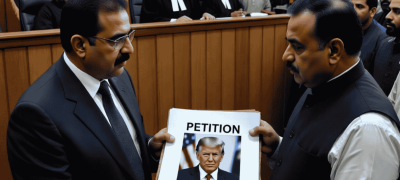In response to the severe smog crisis affecting Punjab, the provincial government has implemented stringent measures to curb outdoor activities and imposed restrictions on retail businesses across four districts—Lahore, Faisalabad, Multan, and Gujranwala. These actions come after a directive from the Lahore High Court (LHC) to address the hazardous air pollution that has engulfed the region.
The new rules mandate that all non-essential retail businesses must close by 8 PM, with exceptions made for essential services like pharmacies, medical stores, laboratories, oil depots, bakeries, grocery stores, fruit and vegetable shops, meat shops, and tandoors. Large departmental stores are also allowed to keep their grocery and pharmacy sections open after 8 PM, but outdoor activities such as sports events, exhibitions, outdoor restaurant seating, and public gatherings are banned after this time. Law enforcement, in cooperation with the environment protection department and local administrations, will strictly enforce these measures.
Also Read: NASA Captures Toxic Black Smog Over Lahore, Delhi Visible from Space
The restrictions, often referred to as a “green lockdown,” are designed to combat the alarming pollution levels in cities like Lahore, which now ranks as the most polluted city globally. Lahore’s air quality index (AQI) has soared to hazardous levels, with readings ranging between 565 and over 1,000 in some areas, far exceeding the World Health Organization’s recommended safe levels. The primary pollutant, PM2.5, is a fine particulate matter small enough to penetrate deep into the lungs and enter the bloodstream, posing significant health risks such as respiratory diseases, eye and throat irritation, and cardiovascular problems.
The new regulations will be in place until November 17. In addition to the business closures, educational institutions and public spaces such as parks and zoos have already been shut down to reduce exposure to the toxic air. Health facilities across the affected districts are reporting a surge in cases of respiratory illnesses, particularly among children and vulnerable groups.
UNICEF has expressed grave concern over the impact of the smog on children’s health, highlighting that more than 11 million children under five years of age in Punjab are at risk due to the toxic air. The organization also pointed out that the closure of schools in smog-affected areas has disrupted the education of nearly 16 million children, compounding Pakistan’s existing education crisis.
The Punjab government, while taking these initial steps, continues to monitor the situation and may adjust lockdown measures depending on the smog levels and public health needs. Residents are being urged to limit outdoor activities, use air purifiers where possible, and wear protective masks to reduce exposure to harmful pollutants.









